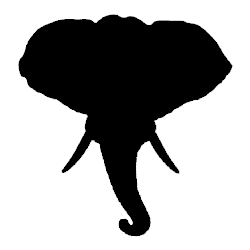GABON
Tackling poaching, improving law enforcement and cracking down on corruption are Gabon’s key challenges in protecting Africa’s largest remaining population of forest elephants.



Is there a need to revise the existing NIAP or develop a new one? ‘YES‘

BEST PRACTICE
Gabon has applied the ICCWC Toolkit and is using the Stop Ivory protocol to manage its ivory stockpile, which are welcome steps. Gabon is in the process of implementing measures to increase security of its national ivory stockpile and to set up a laboratory for DNA analysis.
Gabon has been taking steps to try to combat the increased poaching within the country, including the creation by Presidential order of a 240-strong special forces unit within the ANPN.
The ETIS report to CoP17 found that Gabon has taken active measures to suppress local ivory markets and appears to be sustaining this challenge with relative success.
Gabon’s NIAP is fairly comprehensive but its timelines need to be updated and it should be revised in line with the recommendations set out below.
KEY CONCERNS
Significant source of illegal ivory
Gabon has roughly half of all the remaining forest elephants in Central Africa, according to the IUCN, and it is therefore extremely concerning that the country is a source of illegal ivory. Poaching is a significant problem, particularly in Minkébé National Park which in 10 years lost between 16,000-20,000 forest elephants, representing 60 to 80 per cent of the population.
Gabon, Congo and Cameroon are the source of the most significant quantities of ivory going into trade from the Central African region. DNA analysis by the University of Washington demonstrated that the majority of ivory in large-scale seizures between 2006-14 was poached in only two areas. In the case of forest elephants, 86-93 per cent of seized ivory came from the TRIDOM region of Congo, northern Gabon and the adjacent Dzanga Sangha of SW Central African Republic. Because the number of poaching hotspots are so few and concentrated, a focus of law enforcement efforts on these key areas could result in significant reductions in elephant poaching, choking the biggest flow of contraband ivory entering the criminal networks that allow this transnational crime to operate.
Evidence of bribery/corruption
There have been documented attempts at bribery and court cases resulting in acquittals/cases being dropped despite individuals being found in possession of ivory, likely due to corruption in the judicial system.
According to a US Government analysis, “The Commission to Combat Illicit Enrichment (CNLCEI), established in 2004 and charged with publishing quarterly and annual reports on its activities, has done little to increase transparency. Corruption is rarely, if ever, prosecuted in Gabon. To date, CNLCEI has brought no-one to trial.” The analysis also concludes that the National Financial Investigations Agency (ANIF), which serves to investigate corruption and money laundering, lacks the necessary resources to be effective and the judiciary in Gabon remains inefficient and susceptible to inappropriate influence.
Known incidents of stockpile thefts
In 2015, 300kg of ivory were stolen from the Government’s stockpile. The theft was reported to be the third time confiscated ivory had disappeared from the stockpile, yet no-one has been brought to justice.
No DNA analysis
Gabon has not carried out DNA analysis to aid investigation of ivory offences, or facilitated such analysis by others, despite there being at least 31 ivory seizures since 2010 in Gabon.
Lack of reporting to facilitate CITES decision-making
Although a significant number of ivory seizures occur in Gabon, the CITES Management Authority of the country rarely reports them to ETIS. In recent years, most seizure cases for Gabon have been reported by the NGO community engaged in collaborative law enforcement actions, including Conservation Justice and the Eagle Network.
RECOMMENDATIONS FOR NIAP REVISION / PRIORITY AREAS OF IMPLEMENTATION:
- Increase resources to tackle poaching in key protected areas, especially in Minkébé National Park
- Ensure that Government agencies with the mandate to investigate corruption have adequate resources and increase prosecutions of corrupt officials
- Adopt measures to increase the efficiency and independence of the judiciary to ensure increased convictions for ivory offences
- Continue to implement effective stockpile management procedures and prosecute those responsible for the past stockpile thefts
- Carry out DNA analysis to aid investigation of ivory offences
Key indicators of NIAP progress
